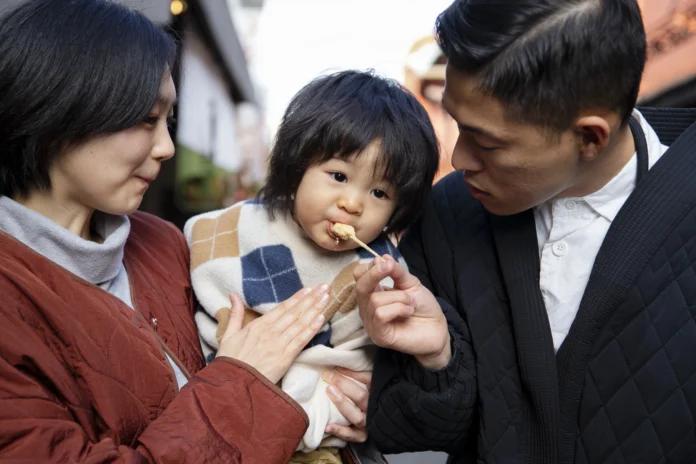In an effort to support working mothers and raise record-low fertility rate, the Japanese capital is planning to implement a four-day workweek for government employees.
According to the Tokyo Metropolitan Government, the new policy, which goes into effect in April, allow employees to take three days off weekly. In a second announcement, it stated that parents of primary school-aged children in grades one through three will be able to exchange a portion of their salary for the opportunity to leave early.
Announcing the policy, Tokyo Governor Yuriko Koike emphasized the need for flexible work arrangements to ensure no one has to sacrifice their career due to life events like childbirth or childcare. “Now is the time for Tokyo to take the initiative to enhance lives and livelihoods during these challenging times for the nation,” she said.
Japan’s fertility rate, which has been falling sharply for many years, hit yet another record low in June, despite the government’s increased efforts to encourage young people to marry and start families.
According to the Ministry of Health, Labour, and Welfare, the fertility rate—the number of children a woman will have in her lifetime—dropped to a new low of 1.2 last year, with only 727,277 births recorded. For a stable population, the fertility rate must be 2.1.
Sociologists blame the crisis on Japan’s rigorous work culture and high living costs. The relentless work hours, often leading to “karoshi” or death by overwork, and societal pressures on women to prioritize family over career, exacerbate the issue.
While Japan has been urging men to take paternity leaves and local governments have introduced improved work policies, the cultural shift remains slow. Globally, the four-day workweek is gaining traction, with studies showing it enhances productivity and well-being. However, in Japan, where long hours symbolize loyalty, such measures are still considered bold.
However, Tokyo isn’t the only Asian city implement more family friendly policies. Earlier this year, Singapore introduced new guidelines requiring all firms to consider requests by employees for flexible-working schedule. That could include four-day weeks or flexible hours.

